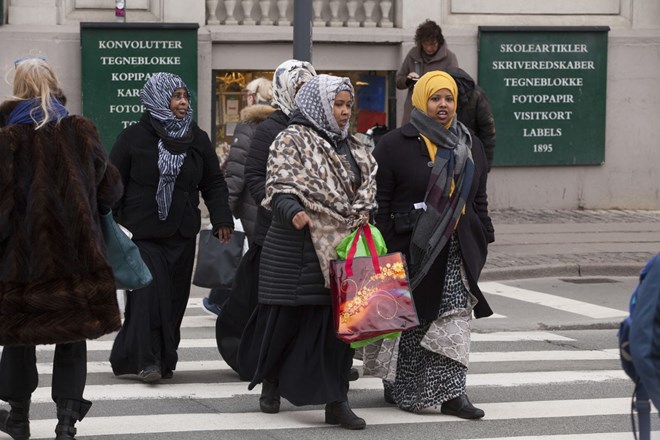FOX
Thursday July 5, 2018

In Denmark, children over the age of 1 who live in low-income, heavily Muslim immigrant communities that the government classifies as “ghettos” will soon be subject to mandatory training in “Danish values.”
Once children turn 1, they will be required to attend daycare centers for at least 25 hours a week, where they will be taught about the Danish culture and language, including Christian holidays such as Christmas and Easter. If parents refuse to send their children, they could lose their welfare benefits.
The law, which was passed on May 28, is part of a broader government initiative titled “One Denmark without Parallel Societies: No Ghettos in 2030.” The plan aims to eradicate what the Danish government says are “parallel communities” in Denmark that are rife with crime and populated by poor, uneducated immigrants from “non-Western countries” who are not being properly integrated into Danish society.
But critics say the policy portrays immigrants, and particularly Muslims, in a negative light. Sara Naassan, a child of Lebanese refugees living in Denmark, told the New York Times, “Danish politics is just about Muslims now. They want us to get more assimilated or get out. I don’t know when they will be satisfied with us.”
In addition to forcing children to attend integration classes, the government plan includes proposals to restrict economic benefits and demolish “ghetto” neighborhoods. One proposal would allow people in the enclaves to be subject to double punishments for crimes like vandalism or theft.
“The ghettos must disappear. We will take control of who moves. In particularly burdened areas, we will punish criminality extra hard,” Prime Minister Lars Lokke Rasmussen said while meeting with other ministers in March.
The government’s policies seem to target Muslims
The Danish government generally labels neighborhoods as “ghettos” if they meet two out of three requirements, according to NPR: Half of the residents are immigrants from non-Western countries, 40 percent are unemployed, or 2.7 percent have criminal convictions.
As of right now, there are 25 communities that fit the bill. And nearly all of them are heavily populated by immigrants from Muslim-majority countries.
According to NPR, “Of the 60,000 people living in these areas, two-thirds are from non-Western countries including Turkey, Syria, Iraq, Lebanon, Pakistan and Somalia.”
Since 2015, Denmark and other European countries have seen a massive influx of migrants from Muslim-majority countries in North Africa and the Middle East who are largely escaping violence or persecution.
That has caused tensions in the small, relatively homogenous country where the majority of native Danes are of Danish descent and are members of the official state church, the Evangelical Lutheran People’s Church of Denmark.
In May, Denmark’s immigration minister, Inger Stojberg, said it was “a danger” for Muslims to work if they fast during the holy month of Ramadan. She insisted that they should instead stay at home “to avoid negative consequences for the rest of Danish society.”
Later that month, Denmark passed a bill banning people from wearing full-face veils in public spaces. This will affect Muslim women who wear the burqa, which covers the face and body, and the niqab, which only covers the face.
The government push to eradicate “ghettos” is being seen as yet another example of the government targeting Muslims.
Birgitte Arent Eiriksson, a senior lawyer for the Danish judicial think tank Justitia, told me that a growing number of politicians in Denmark “have an opinion that it is the Muslims who are making the problems in this country, and if we control them and prevent more Muslims from coming, some of our problems will go away.”
But Danish officials have denied that they’re specifically singling out Muslim communities, saying that they’re merely making the country safer. “That’s nonsense and rubbish. To me this is about, no matter who lives in these areas and who they believe in, they have to profess to the values required to have a good life in Denmark,” Soren Pape Poulsen, the Danish justice minister, said at an annual political gathering last month.
But their emphasis on “non-Western immigrants” and insistence on teaching immigrants Christian traditions suggests otherwise. So, too, does their rhetoric.
“We should be able to recognize our country,” Prime Minister Rasmussen said in March. “There are places where I don’t recognize what I’m seeing.”